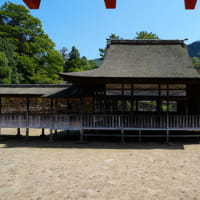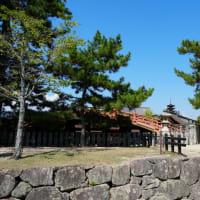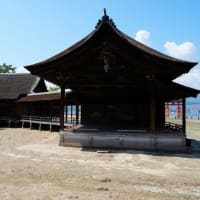The following book by journalist Yoshio Kisa, former Yomiuri Shimbun Berlin correspondent, is a must-read for the Japanese people and people worldwide.
The Japanese people should go to their nearest bookstore and buy a copy right now.
I will do my best to make the rest of the world aware.
It is no exaggeration to say that this is one of the most important books of the 21st century.
It is a real book full of facts that the Japanese people and people worldwide are learning for the first time, and it costs only 990 yen.
A friend of mine, an avid reader, said, "There is nothing cheaper than a book," which is true.
This excellent book also proves that my thesis is correct.
It is no exaggeration to say that Japan is the only place where the world now has a genuine thesis that required reading every day.
It is God's providence that the turntable of civilization is turning in Japan.
I have mentioned the reasons for this several times.
For the first time in human history, Japan has created a society without class, religion, or ideology.
There was no such country anywhere else in the world but Japan.
Before Japan, it turned the turntable of civilization in the United States.
The reason was that the U.S. was the champion of freedom and democracy.
For the next 170 years, Japan and the U.S. must lead the world in parallel.
The GHQ has left a terrible mark on Japan.
When I still subscribed to the Japanese edition of Newsweek, it polled German attitudes toward Japan and the Japanese people.
I was surprised and dismayed to read that about half of the German people had anti-Japanese views.
I have written several times about my anger and contempt for Germans.
This book is a perfect example of how vile the Germans are for holding anti-Japanese views toward Japan.
It was only natural that such lowly people would create and sympathize with the Nazis.
It is only natural that such lowly people would sympathize with the anti-Japanese propaganda of China and South Korea, the land of "abysmal evil" and "plausible lies."
Almost all Japanese would be stunned to learn that the Germans are such lowly people.
The Japanese media, which has failed to inform us of the reality of the German people, is not only not a journalist but is also not even a member of the media.
They and the scholars and so-called cultural figures who have been sympathetic to them have been saying things like, "Learn from Germany" and other such nonsense.
They are the worst idiots in human history.
This book also proves 100% the correctness of my intuition, which has been abusing those saying, "Learn from Germany."
p19-p47
Chapter 1: Germany's Shameless Condemnation of Japan
Anti-Japanese activities by Korean activists are becoming more and more violent in many countries.
In particular, the comfort women campaign of anti-Japanese groups has spread to Germany, and there has been a succession of cases of comfort women statues being set up.
There is no doubt that the comfort women issue is the most significant factor in damaging the image of Japan in the international community.
In Germany, some take this issue as an opportunity to expand and reproduce the German-Japanese stereotype.
With the support of a former leftist prime minister, a comfort women statue was erected on public land in Berlin.
On September 28, 2020, a ceremony was held to unveil the "Girl of Peace" statue, which symbolizes comfort women, in the central district of Berlin, where the Brandenburg Gate and other buildings are located.
In the past, two comfort women statues have been erected on private property in Germany, but this is the first time they have been placed in a public place in the capital.
The statues were erected on the side of a road in a residential area, which is public land managed by the city of Berlin.
The unveiling ceremony was attended by about a hundred local politicians and citizens.
According to South Korea's Yonhap News Agency, this is the work of the creators of the comfort women statue, which was exhibited in the "Non-Expression Exhibition and After," a special exhibition that was temporarily canceled the previous year at the Aichi Triennale 2019 in Aichi Prefecture.
The Korean Council for Justice and Remembrance (The Korean Council for the Women Drafted for Military Sexual Slavery, formerly Chong Dae Hyup), a Korean anti-Japanese group in Berlin, took the lead in promoting the installation of the statue, and the Korean comfort women victim support group supported its production.
An official of the Berlin Central District said, "We have allowed the statue to be installed as a work of art for a limited period of one year," and "We hope it will convey the message of opposition to sexual violence against women everywhere."
However, the statue had the following inscription in German.
During World War II, the Japanese military forcibly took women as sex slaves throughout the Asia-Pacific region.
There were indeed comfort women during the war, but they were neither enslaved nor forced into slavery.
It is supported by thorough investigations by the Japanese and U.S. governments.
Foreign Minister Toshimitsu Mogi had a televised meeting with German Foreign Minister Heiko Maas and asked for his cooperation in removing the statues.
He has explained that there is a 2015 "Japan-Korea Comfort Women Agreement" between the governments of Japan and South Korea.
The agreement states as follows.
・The South Korean government will not support the installation of statues overseas.
・The term "sexual slavery" will not be used.
・The Korean side will make efforts to persuade domestic support groups to resolve the issue of the statue in front of the Japanese embassy in Korea.
Korean internet users have repeatedly criticized the Japanese government's stance, saying, "This is the difference between Germany, a developed country in history, and Japan, a developing country."
It can also see the German-Japanese stereotype here.
In Berlin, there is an unidentified organization called AG (Inc.) Trostfrauen (meaning "comfort women").
According to its website, the organization runs a comfort women campaign in Germany, with activists from "Germany, Japan, South Korea, Congo, the Philippines, and other countries.
It is noteworthy that Japan is listed second only to Germany and ahead of South Korea.
plays a central role.
It is believed that activists from these countries worked together to set up the statues.
On November 5, the Chuo City Assembly adopted a resolution to keep the statue of the Girl of Peace for one year. On December 1, it overwhelmingly passed a motion calling for the "permanent installation" of the figure.
The resolution included a vague statement that the figure would discuss sexual violence against women during armed conflict.
Of the 37 lawmakers in attendance, 28 voted in favor and nine against.
The Social Democrats, Greens, Left Party, and others voted in favor, while the Christian Democratic Union (CDU), led by Chancellor Merkel and others, opposed.
What is noteworthy about this uproar is the reaction in Germany.
Former Chancellor Gerhard Schröder (Social Democrat) and his South Korean wife jointly sent a letter to the mayor of the central district, demanding that the decision to remove the monument be reversed.
According to media reports, the couple said, "Germany is respected worldwide for clearing up its Nazi past. The German authorities must not be complicit in the cover-up of Japan's war crimes."
Professor Steffi Richter of the Department of Japanese Studies at the University of Leipzig, Germany, commented to the Hankyoreh newspaper in South Korea.
The newspaper described Richter as "a German Japanologist who is well versed in the issue of Japanese history textbooks and Japan's new right-wing revisionism."
"We were shocked by the attitude of the German Federal Foreign Office and its Berlin counterpart in responding to pressure from the Japanese government."
"In Japan, many right-wing groups have emerged since the mid-90s to deny war crimes committed by the Japanese military, but they operate mainly in the political and diplomatic spheres. Attempts to remove comfort women in multiple locations worldwide since 2011, and the recent use of pressure on Berlin girls, have something to do with this reactionary network."
Ilse Lenz, a former professor in the Department of Sociology at Bochum University in Germany, told the newspaper, "What is important is not the conflict between Korea and Japan. Many Japanese have tried to protect justice against war sexual violence. We must distinguish between the current Government of Japan, which suppresses the controversy over war sex crimes, and the Japanese, who do not support war and sexual violence." (Delivery on October 12)
The issue here is "Japanese who tried to defend justice," which I will discuss later.
In general, German scholars of Japan are said to have a similar view of postwar Japan as Professor Richter.
It is in contrast to the unusually high evaluation of Germany's postwar efforts by Japanese German researchers in Japan (see "Chapter 2: Reckless Remarks by Anti-Japanese Japanese Poisoned by the "Tokyo Trials Historical Perspective").
This article continues.




















